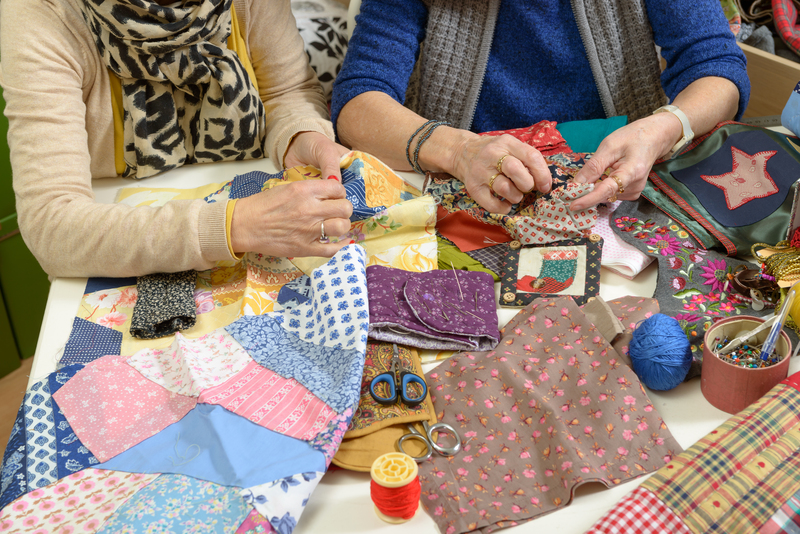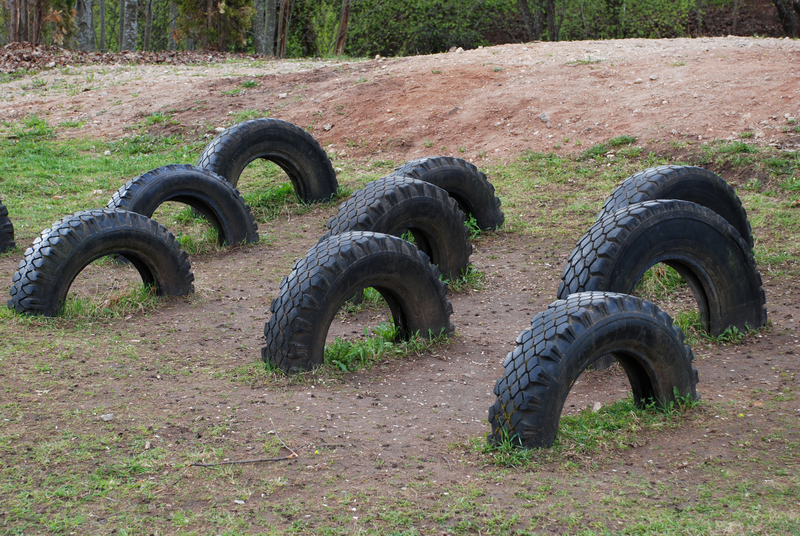Cheap and Effective Ways to Dispose of Bulky Waste
Disposing of large, unwanted items such as old furniture, appliances, mattresses, garden debris, and construction materials can often feel overwhelming and expensive. Efficiently and responsibly getting rid of bulky waste doesn't need to break the bank, damage the environment, or cause unnecessary stress. In this comprehensive guide, we unveil cheap and effective ways to dispose of bulky waste so you can clear your space without burning a hole in your pocket.
Whether you're a homeowner, renter, landlord, or property manager, knowing your options can help you save money, reduce your environmental impact, and keep your property tidy.
Why Proper Disposal of Bulky Waste Matters
Improper disposal of large and bulky refuse can cause a slew of problems:
- Environmental hazards: Many bulky items contain hazardous materials that can harm soil, water, and wildlife if dumped illegally.
- Legal repercussions: Many localities fine individuals and businesses for illegal dumping.
- Community impact: Dumped waste is unsightly, can reduce property values, and attracts pests.

Top Cheap & Effective Bulky Waste Disposal Methods
Let's look at practical, low-cost bulky item removal options that are environmentally responsible and easy to access.
1. Use Your Local Council's Bulky Waste Collection Service
Many municipalities offer scheduled or on-demand bulky waste collection services, often for free or a small fee. This is one of the most convenient and budget-friendly ways to dispose of household items like:
- Mattresses and bedframes
- Sofas, chairs, and desks
- White goods (fridges, washing machines, etc.)
- Carpets and rugs
- What items are accepted
- Collection dates or booking procedures
- Fee structure, if any
2. Donate to Charity and Second-Hand Shops
A sustainable and cost-free method to dispose of unwanted large items is to donate them. Many charities run furniture banks & thrift stores and will often:
- Pick up large items from your home for free
- Accept gently used furniture, appliances, and electronics
- Provide a donation receipt for tax purposes
Well-known organizations that accept bulky donations include:
- Goodwill
- Habitat for Humanity ReStores
- The Salvation Army
- Local homeless shelters and churches
3. List Items Online for Free or for Sale
If your bulky goods are in decent condition, you might actually make some cash (or at least get free removal) by listing them online:
- Craigslist and Facebook Marketplace: Offer for free or a nominal price. Mark as "curb alert" or "you collect."
- Freegle, Freecycle, and local swap groups: These platforms are dedicated to giving things away for reuse.
4. Take It to the Local Recycling Center or Transfer Station
Most counties or regions have waste drop-off points where you can bring your bulky refuse for either free or a small per-item fee. Some materials--like metal, clean wood, or certain plastics--may be recycled at no charge.
To save money:
- Sort items into recyclable and landfill piles to avoid fees where possible.
- Check for "city dump days" or free tipping vouchers periodically provided to residents.
5. Hire a Low-Cost Skip or Dumpster
If you have a large-scale cleanout (like a renovation or eviction), renting a skip or dumpster may offer the best value overall. Options include:
- Mini-skips for small jobs
- Shared dumpsters with neighbors to split costs
6. Host a Curbside Giveaway or Neighborhood Swap
Engage your neighbors with a community swap day:
- Designate a weekend for everyone to place unwanted large items at the curb
- Allow passersby or neighbors to take what they want
- Coordinate a follow-up collection for leftovers with your local council
7. Repurpose, Upcycle, or Break Down Items
Before throwing away large household goods, consider if they can be:
- Repurposed (e.g., turn an old door into a table)
- Upcycled for art or DIY projects
- Broken down into recyclable components (scrap metal, wood, glass, etc.)
Tips for Reducing Bulky Waste Disposal Costs
- Group items together: Disposing of several items at once can lower collection or tipping fees.
- Ask your landlord or HOA: They may organize bulk pickups periodically.
- Coordinate with neighbors: Share removal services and split costs.
- Shop around: Junk removal businesses often price-match or offer special rates for off-peak times.
- Prepare items in advance: Dismantle or flatten items if possible; this saves space and money.
What Not to Do When Disposing of Bulky Waste
Never dump unwanted items illegally--this harms the environment, is unsanitary, and often carries heavy fines.
Do not:
- Leave items on public land or in vacant lots without permission
- Throw toxic or hazardous waste (like old fridges or televisions) in the regular trash
- Burn furniture, mattresses, or household goods
Factors Affecting Bulky Waste Removal Costs
- Item type and size: Larger or heavier items often cost more to dispose of.
- Accessibility: Difficult-to-access locations (like upper stories) may incur an extra labor fee.
- Type of waste: Some items (like electronics or white goods) require special processing.
- Volume: Disposal is usually more economical per item when larger volumes are collected at once.
Bulky Waste Items: What Can Be Recycled or Donated?
Many large household goods can be partially or fully recycled or accepted by donation outlets. Here is a brief overview:
- Mattresses: Often accepted by mattress recycling facilities.
- Appliances: Most metal-based or mechanical items are recyclable (fridges, washers).
- Electronics: Many cities offer e-waste collection days for TVs, monitors, etc.
- Furniture: Wooden, metal, and some upholstered items can be donated or recycled.
- Carpets and rugs: May be recycled or upcycled, depending on material.
Comparing Bulky Waste Disposal Methods: Cost & Environmental Impact
| Bulky Waste Disposal Method | Average Cost | Eco-Friendliness | Best For |
|---|---|---|---|
| Council Collection | Free/Low | High | General household items |
| Charity Donation | Free | Highest | Usable furniture, appliances |
| Online Giveaways | Free (may earn money!) | High | Good-condition items, DIYers |
| Recycling Center | Low/Free | Mid-High | Metal, white goods |
| Skip/Dumpster Rental | Low-Mid (if shared) | Varies | Renovations, large cleanouts |

Frequently Asked Questions on Cheap Bulky Waste Disposal
Q: What items are classified as bulky waste?
Common examples include sofas, beds, wardrobes, large toys, fridges, washing machines, and garden sheds.
Q: How do I find the cheapest way to dispose of large items in my area?
Check your local government's website for special pickups or free recycling events. Compare rates from junk removal services. List good-condition items online for pickup.
Q: Can I leave my furniture on the curb?
Only if your city has a scheduled bulky collection day or you have arranged a pickup--otherwise, you could be fined.
Q: Is it illegal to dump items in a dumpster that isn't mine?
Yes, this is considered illegal dumping ("fly-tipping" in some areas) and can result in hefty fines.
Q: What should I do with unsellable, broken large items?
Take them to a local recycling or transfer station. Some municipalities offer hazardous or bulk-item drop-off days at little or no cost.
Conclusion: Disposing of Bulky Waste Doesn't Have to Be Costly
With a little planning, you can get rid of bulky waste affordably and responsibly. Explore council collections, donation, recycling facilities, and creative reuse to keep costs low and your environmental impact positive. Always check local regulations, prepare items for efficient removal, and consider teaming up with neighbors or community groups for even lower rates.
Make a habit of considering secondhand options for your own purchases; when it's time to toss, you'll know exactly who may want your unwanted items.
Looking for affordable bulky waste solutions in your area?
Contact your local waste authority, environmental charities, or browse online community boards to find the best cheap and effective ways to dispose of bulky waste near you.
Keywords for SEO: cheap bulky waste disposal, low-cost bulky waste collection, effective large item removal, affordable bulky trash haulaway, bulk item disposal tips.
